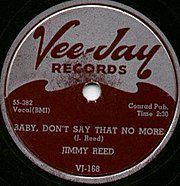Ten blocks of Michigan Avenue between Roosevelt and Cermak…in the 1950s to early 1970s these 10 blocks on the South Side of Chicago provided a venue for talented African American musicians to create, produce, perform and distribute music to a broad audience. It was also a place for these musicians to document a piece of their culture, including rhythm and blues music, and share it with listeners all around the world.
Record Row in Chicago was such a place and featured artists including Etta James, Jimmy Reed, the Staple Singers and many more. Record Row was the home to businesses including Chess Records, Vee-Jay Records, Brunswick Records, Garmisa Distributing Company, Jerry Butler’s Songwriters Workshop, One-derful Records and Constellation Records. In addition to these record labels, this 10-block avenue fostered the growth of many African American businesses.


Sadly, what remains of Record Row today is 10 blocks of dilapidated buildings. Once these local record labels began moving to other cities outside the Midwest or were sold to larger, majority owned record labels, it marked the end of Record Row. It begs the question, what does it take to sustain and perpetuate a vibrant community of primarily African American businesses that was once thriving?
Cohen, Aaron. “Summoning the ghosts of Record Row.” Chicago Reader, 23 Oct. 2019, chicagoreader.com/chicago/record-row-soul-michigan-brunswick-chess-veejay/Content?oid=74881855.
Murphy, Amanda. “Record Row Remembered.” The Columbia Chronicle, 20 Feb. 2012, columbiachronicle.com/832ce586-bb64-5f31-b9bf-b2aae2c524cf.

Login to your account